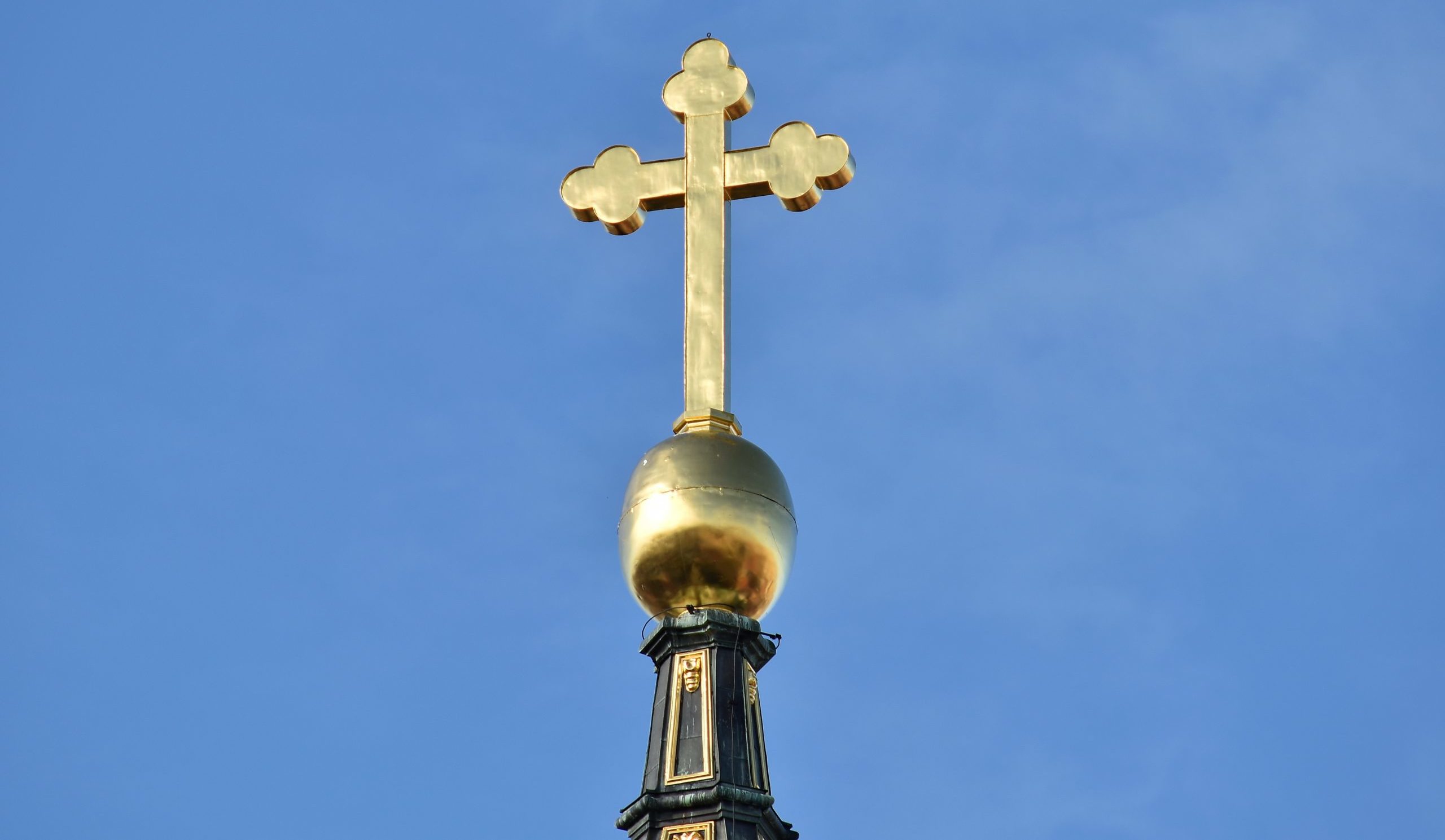Until about 1950, every major Protestant denomination vigorously opposed abortion, and church leaders condemned it in the strongest possible terms. Ministers were unfazed by pro-abortion criticism because their teachings were solidly based upon the theology of their original founders.

John Calvin said:
If it seems more disgraceful that a man be killed in his own home than in his field — since for every man his home is his sanctuary — how much more abominable is it to be considered to kill a fetus in the womb who has not yet been brought into the light? … The unborn, though enclosed in the womb of his mother, is already a human being, and it is an almost monstrous crime to rob it of life which it has not yet begun to enjoy.1
Benjamin Wadsworth said that the Fifth Commandment refers to “poisoners and so to those who purposely endeavor to destroy the life of a child in the womb, whether the woman herself, or another does it.”2 Martin Luther wrote, “Even if all the world were to combine forces, they could not bring about conception of a single child in any woman’s womb nor cause it to be born; that is wholly the work of God alone.”3
The Views of Christians on Abortion Today
Every country in the world that has legalized contraception has eventually done the same for abortion. This inexorable process applies to Christian churches as well. After the Anglican’s 1930 Lambeth Conference gave the go-ahead to contraception used only in accordance with “Christian principles,” it was only a matter of time before the Protestant churches slid from hard-line opposition to active pro-abortion advocacy.
Pro-abortion activists seized this unique opportunity to sideline a powerful potential enemy. The Religious Coalition for Reproductive Choice and other church-based pro-abortion splinter groups were founded for the sole purpose of making it appear that all of the mainline Protestant churches were ardent supporters of abortion. Activists within each denomination packed their church’s social issues committees, showed up at all the pro-abortion marches with colorful banners prominently featuring their church names and logos, and signed all of the many pro-abortion resolutions circulated to give the false impression that the overwhelming majority of Protestants are “pro-choice.”
It appears on the surface that most Protestant denominations eagerly accepted abortion as part of their activist social agenda. But pro-abortion activists employed the very effective strategy of “infiltration and subversion,” and by 1975 they had taken over important church committees and corrupted them to the point that every mainline Protestant denomination had pronounced abortion acceptable. It is vital to note that the rank-and-file members of these churches were mainly pro-life. But the media endlessly repeated the mantra cooked up by NARAL, which said that “even among religious organizations only the Roman Catholic Church and small fundamentalist Jewish and Protestant groups oppose the right to abortion.”4
Pro-Life Churches Are Growing
When nations and churches embrace contraception, abortion and divorce, they immediately begin to die, so it is really no surprise that the “mainline” Protestant churches are declining in membership. They tend to be very active in various liberal social efforts but have confused worship with action. If they are not quite dead yet, their bodies certainly have an advanced case of gangrene. What, after all, is the point in belonging to a church that provides no moral standards to live by? Many are merely social clubs, and provide, at best, an opportunity to have a pleasant get-together with friends every week or so.5
But people seek the truth, not the bland pabulum dished up by liberal churches. This is why the pro-life Catholic, Evangelical, and Mormon churches have exploding memberships, while the pro-abortion churches are obviously in deep trouble. Most of the change is due to more than 44 million people changing denominations because, as researcher Rodney Stark put it, “Americans mostly change churches in search of a deeper, more compelling faith.”6
Thus, pro-life churches in the United States have gained 38% in membership over the time period 1970 to 2013, growing from 96.7 million to 133.9 million, while the pro-abortion churches have lost 35% of their membership during the same time span, collapsing from 24.3 million to 15.9 million members.7
Many large pro-life churches have multiplied their memberships spectacularly during the past 43 years, including the Pentecostal Assemblies of the World (841%), the Evangelical Presbyterian Church (769%) and the Evangelical Free Church in America (758%). Meanwhile, the pro-abortion mainline Protestant churches are experiencing disastrous slumps in membership. The Episcopal Church has lost 44% of its membership, the United Church of Christ 50%, the United Methodist Church 30%, and the Presbyterian Church USA 11%.8
Pro-abortion groups endlessly insist that there is no religious consensus on abortion. Superficially this may appear to be true, but adherents of pro-life churches now outnumber members of pro-abortion churches by a ratio of 8.4 to one. By any standard, this is a strong consensus against abortion.

Fortunately, this disastrous collapse in membership has begun to force the leadership of pro-abortion churches to face reality. The official bodies of the mainline Protestant denominations have written detailed statements on their beliefs regarding abortion. Some of these statements are logical and address the main issues, but others are virtually useless for the purpose of instructing and informing the people who sit in the pews.
Some statements ramble on for several pages about how human life is an “awesome,” “incomprehensible” and “precious” gift of God, and then degenerate into a spiel about valuing diversity before concluding with a green light to dispose of these same gifts of God ― subject to very carefully drawn exceptions, of course. Interestingly, these statements are critical of abortion after viability and for the purposes of birth control and sex selection, but approve it for rape, incest, fetal abnormality, or to preserve the life of the mother, which comprise only about 3% of all abortions. The statements also say that everyone must make up their own minds on the issue, that everyone’s circumstances are different, and for these reasons laws should not be passed to limit abortion in any way.
In other words, these churches claim that they oppose 97% of all abortions, but then do absolutely nothing to put their beliefs into action. The Presbyterian Church USA, the United Methodist Church and the Episcopal Church fall into this category.9
Several other denominations allow the same abortion exceptions but are much more stringent in their application. Their statements unambiguously condemn abortions for birth control, social reasons and sex selection. They also say that “hard case” abortions should only be permitted after intensive counseling by Church clergy, and even then abortion might not be appropriate. The Lutheran Church-Missouri Synod, for example, specifically condemns abortion for rape and incest and only allows it in the case of a confirmed threat to the life of the mother. Others following this formula include the Church of Jesus Christ of Latter-day Saints (Mormons), the American Baptist Churches in the U.S.A. and the Evangelical Lutheran Church in America.10
It is obvious from reading their statements that, in general, the mainline Protestant churches are much more anti-abortion than the media or their loud “pro-choice” member groups would have us believe. But they have found through bitter experience that it is so easy to loosen moral standards, and so dreadfully difficult to tighten them again. Due to our fallen human nature, people become accustomed to their new “rights” and “freedoms,” even if they are illicit, and then become addicted to them, becoming unable to imagine life without them. Many Protestant clergy are concerned that the pendulum has swung much too far in the direction espoused by Katherine Hancock Ragsdale, former president of the Religious Coalition for Reproductive Choice (RCRC), who said, “We must give up the idea that we can cling to some moral certainty.”11
Conclusion
In summary, there is a very strong religious consensus against the vast majority of abortions in the United States. Opposition to abortion is not just a “Catholic issue,” and it is not even just a Christian issue. Buddhists, Hindus, Jainists, Muslims, Jews, Krishnas, and many other non-Christians oppose abortion on both religious and secular grounds.

Pro-life Catholics may very well find that reaching out to our Protestant brothers and sisters for the cause of life will bear abundant fruit. If enough of us do this, some day the pro-abortion movement will be confronted with its worst nightmare ― Christians truly united against abortion.
+ Endnotes
[1] John Calvin. Commentarius in Exodum, pages 21 and 22, in Opera, edited by J.W. Braum (Brunswick, 1882), Volume XXIV, page 625.
[2] Benjamin Wadsworth. An Essay on the Decalogue or Ten Commandments (Boston, 1719), page 29.
[3] Martin Luther. Luther’s Works (St. Louis, Concordia Publishing, Volume VII), page 21.
[4] Looseleaf booklet entitled “Organizing for Action.” Prepared by Vicki Z. Kaplan for the National Abortion Rights Action League (NARAL). 1978, page 31, “Introduction to Debating.”
[5] As William Barclay said, “There is nothing that the world would like so much as a silent Church.” (William Barclay. The Ten Commandments for Today [Grand Rapids, Michigan: Eerdmans], 1973, page 94).
[6] Rodney Stark. What Americans Really Believe (Waco, Texas: Baylor University Press), 2008, page 26.
[7] For documentation and a detailed table on the annual membership statistics for major pro-life, pro-abortion and “neutral” church denominations for the time period 1960 to 2013, see Excel spreadsheet F-20-06.XLS, appended to Chapter 20 of The Facts of Life, “Contraception,” on Human Life International’s Pro-Life Library DVD.
[8] This is in comparison to a rise in population of the United States from 209.5 million in 1970 to 317.2 million in 2013, an increase of 51%.
[9] The Presbyterian Church USA affirms that abortion “should not be used for convenience or to ease embarrassment or as a means of birth control,” or for gender selection. (Office of the General Assembly, Presbyterian Church USA; “Report of the Special Committee on Problem Pregnancy and Abortion.” Section I, paragraphs E(1)f and E(1)g, “Policy Development.” 1992 (the most recent such statement from the General Assembly.)
The United Methodist General Conference modified the denomination’s Social Principle on abortion during its annual meeting in Tampa in May 2012. The “New Social Principle on Abortion” condemns abortion as a means of birth control and “unconditionally” rejects it as a means of gender election or eugenics. The General Conference also called for an end to late-term abortions “except when the physical life of the mother is in danger and no other medical procedure is available, or in the case of severe fetal anomalies incompatible with life.”
The Episcopal Church says that “the church condones abortion only in cases of rape or incest, cases in which a mother’s physical or mental health is at risk, or cases involving fetal abnormalities” and forbids “abortion as a means of birth control, family planning, sex selection or any reason of mere convenience” (The Episcopal Church Acts of Convention. Resolution #1994-A054, “Reaffirm General Convention Statement on Childbirth and Abortion.”)
For detailed Church denomination statements on abortion, see the Pew Forum.
[10] Evangelical Lutheran Church in America. “A Social Statement on Abortion.” September 1991 (this is the most recent statement of policy by ELCA). The American Baptist Churches, USA denounced “irresponsible sexual behavior” and stated, “As American Baptists, we oppose abortion, as a means of avoiding responsibility for conception, as a primary means of birth control without regard for the far-reaching consequences of the act.”
[11] Katherine Hancock Ragsdale, former president of the “Religious” Coalition for Reproductive Choice (RCRC), quoted in “Church Groups Lobby for the destruction of Unborn.” American Family Association Journal, January 1997, page 9.
Perhaps Hancock should read the Bible, which condemns homosexual activity (Deuteronomy 23:17; 1 Kings 14:24, 15:12, 22:46; and 2 Kings 23:7), divorce (Matthew 5:31-32, 19:3-9; Luke 16:18; and 1 Corinthians 7:10-15), fornication (2 Chronicles 21:11; Isaiah 23:17; Ezekiel 16:26,29; Matthew 5:32, 19:9; John 8:41; Acts 15:20,29, 21:25; Romans 1:29; 1 Corinthians 5:1, 6:13,18, 7:2, 10:8; 2 Corinthians 12:21; Galatians 5:19; Ephesians 5:3; Colossians 3:5; 1 Thessalonians 4:3; Jude 1:7; and Revelation 2:14,20-21, 9:21, 14:8, 17:2,4, 18:3,9, and 19:2), and adultery (Exodus 20:14; Leviticus 18:20, 19:20, 20:10-12; Deuteronomy 5:18, 22:13-29, 27:20, 27:23; Proverbs 6:26, 6:29, 6:32; Matthew 5:27,28,32, 15:19, 19:9,18; Mark 7:21, 10:11-12,19; Luke 16:18, 18:20; John 8:4-11, Romans 7:3, 13:9, 1 Corinthians 6:9; Galatians 5:19; Ephesians 5:5; and Hebrews 13:4).
Dr. Brian Clowes has been HLI’s director of research since 1995 and is one of the most accomplished and respected intellectuals in the international pro-life movement. Best known as author of the most exhaustive pro-life informational resource volume The Facts of Life, and for his Pro-Life Basic Training Course, Brian is the author of nine books and over 500 scholarly and popular articles, and has traveled to 70 countries on six continents as a pro-life speaker, educator and trainer.








Jesus used the word Gehenna eleven times in the Gospels to describe Hell. He chose not to use the much more common words Sheol and Hades. Gehenna is defined as the Valley of Hinnom. Jesus said it would be better to pluck out your eye (Matthew 5:29; Matthew 18:9; Mark 9:47), cut off your hand (Mark 9:43), or cut your foot off (Mark 9:45) rather than go there. What was happening in the Valley of Hinnom that caused Jesus to say that?
It turns out that infanticide was illegal in Israel (Leviticus 18:21; Leviticus 20:1-5) until King Solomon legalized the worship of the false god Molech in the Valley of Hinnom (2 Chronicles 28:1-3; 2 Chronicles 33:6). Molech worshippers passed their sons and daughters to their deaths through a ritual fire. Once deceased, their bodies were disposed of in the nearby Topeth crematorium. Simply stated, illegal infanticide became legalized infanticide because of King Solomon’s executive order (1 Kings 11:5-7 especially v 7).
About three centuries after Solomon, the Lord caused the ten tribes of Israel to be overcome and carried off to Assyria because they wouldn’t give up legalized infanticide and Molech worship (2 Kings 17:7-23 especially v 17).
Around one century later, the Lord caused Judah to be overcome and carried off to Babylon, specifically because of one, and only one, law…ie: legalized infanticide via Molech worship (2 King 21:6; 2 Kings 21:16; 2 Kings 24:3-4).
At this point, we should recall that the Lord loved both Israel and Judah, but this didn’t stop Him from destroying them because of legalized infanticide. So it is with the United States today. The Lord has blessed this nation, but we have embraced our own form of Molech worship. In our case, we’ve embraced legalized abortion. According to the model that I described above, the Lord has no option but to destroy us and give the United States into the hands of another nation.
The unnecessary destruction of our nation because of one law, one single law, ie: the legalized abortion of pre-born babies, is a truly significant revelation. It may be that this well-documented model is the revelation that Pro-Life leaders of every ilk have needed to strengthen their battles and successfully overturn all abortion laws.
One wonders if pro-abortion advocates and practitioners will maintain their political agendas when it is revealed to them that they are modern-day Molech worshippers. After all, you can’t serve two masters. One wonders if they will maintain their hard-hearted stance on abortion when they come to see that it will ultimately cost them the very nation that they love.
How would one communicate this revelation to pro-abortion citizens across the United States? I don’t know, but I believe it’s worth trying!
I’ve been trying to gain clarity on this topic for a while now and this is the first article that I have read stating Protestants “vigorously opposed abortion” until the 1950’s. The vast majority of other sources I have found suggest the opposite – that is to say Protestants were only moderately opposed to abortion until the 1950’s and only took up anti-abortion as a banner to march under in the 1960-1970’s.
I have specifically been researching the subject of why Christianity and Judaism approach abortion so differently in light of the fact that they both reference the same literature as the basis of belief. Note that Christians rarely reference the NT in this discussion. With this in mind, I was struck by the implied equivocation of Christians and Jews in their approach to abortion in this article’s conclusion.